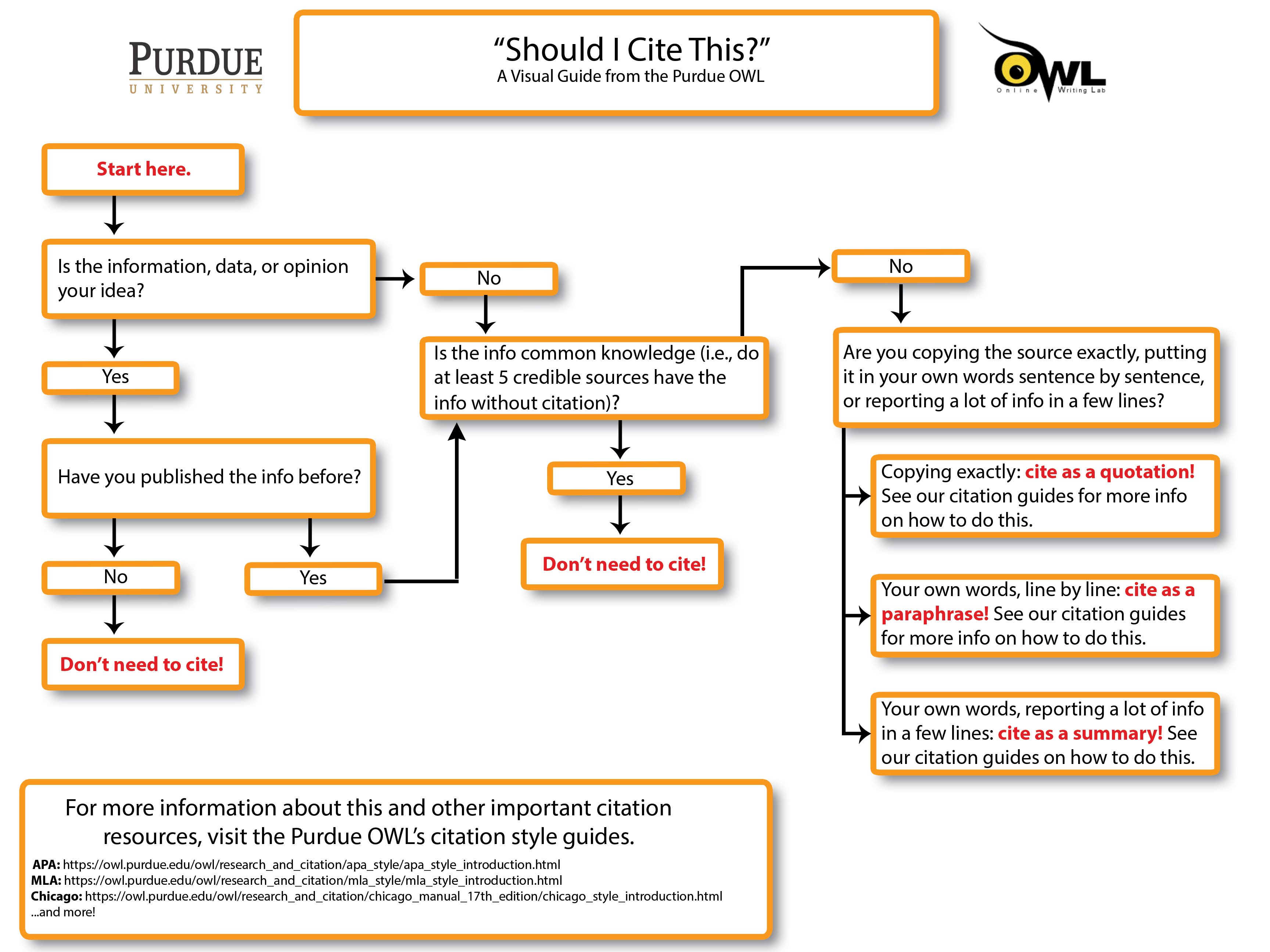Cite Right
Citing sources is a fundamental part of academic writing. It helps to give credit to original authors, avoid plagiarism, and support your arguments. As a student, understanding when and why to cite is crucial to producing quality work.
Basic Guideline from Purdue OWL
Below is a basic guideline from Purdue Online Writing Lab on determining whether you should cite a source:

When to Cite
Basically, if the information, data, or opinion is neither your idea nor common knowledge, you must provide a citation. Whether you’re directly quoting—common in courses like ENGL1000J and ENGL2000J—or paraphrasing and summarizing—covered in technical writing—you always need to cite the source.
Common Knowledge vs. Specific Knowledge
One tricky aspect is deciding whether an idea is common knowledge. For example, as a Chinese student, you may think it’s obvious that eating rice triggers a sense of home. However, someone from America or Europe might not share that cultural background. To clarify, you might need to cite a source that supports “rice is a common food in Asia”. A quick test is to see if at least five credible sources state the same fact without providing a citation, which often indicates it’s widely accepted as common knowledge.
Why Citations Matter
These guidelines highlight how crucial citations are. They:
- Showcase your credibility and integrity
- Allow readers to locate the information you’ve referenced
- Create a transparent link between your ideas and the original work
Remember: Proper citation is more than a technical requirement. It’s a way to acknowledge the intellectual efforts of others and to situate your own arguments within an established scholarly conversation.
Enjoy Your Writing
Always remember to cite properly in your works, and have fun honing your writing skills. By acknowledging your sources, you strengthen your own arguments and maintain the academic integrity vital to scholarly work.
